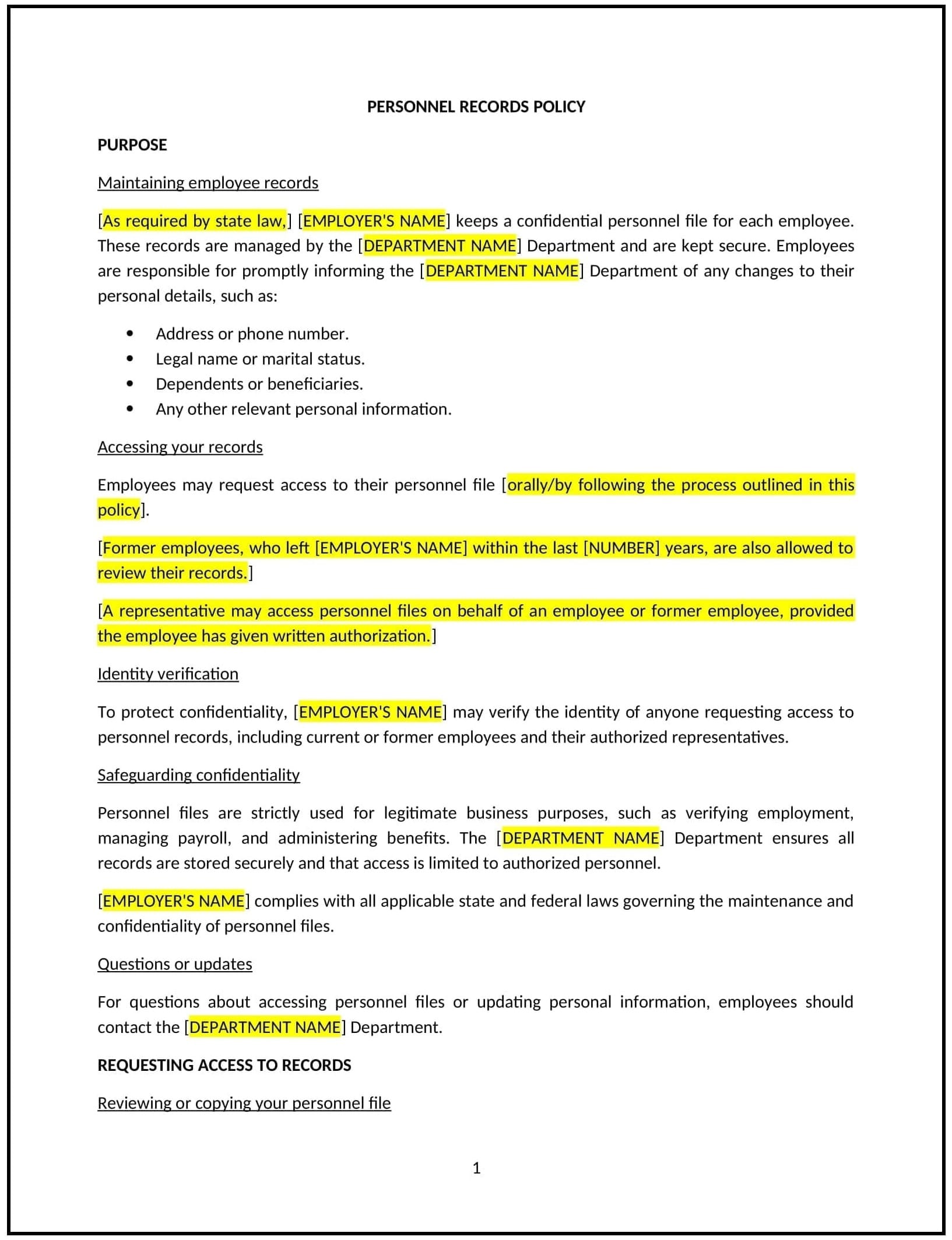Got contracts to review? While you're here for policies, let Cobrief make contract review effortless—start your free review now.

Customize this template for free
Personnel records policy (Utah)
This personnel records policy is designed to help Utah businesses establish guidelines for maintaining and managing employee records. It outlines procedures for collecting, storing, and accessing personnel records to ensure accuracy, confidentiality, and compliance with federal and state laws.
By adopting this policy, businesses can protect employee privacy, maintain organized records, and align with general best practices for record-keeping.
How to use this personnel records policy (Utah)
- Define personnel records: Specify what constitutes personnel records, such as employment applications, performance reviews, or payroll information.
- Establish storage procedures: Provide guidelines for securely storing personnel records, both physically and digitally.
- Limit access: Specify who can access personnel records and under what circumstances.
- Address retention periods: Outline how long personnel records should be retained based on legal and business requirements.
- Train employees: Educate HR staff and managers on handling personnel records responsibly.
- Monitor compliance: Regularly review record-keeping practices to ensure adherence to the policy.
- Review and update: Assess the policy annually to ensure it aligns with evolving laws and business needs.
Benefits of using this personnel records policy (Utah)
This policy offers several advantages for Utah businesses:
- Protects employee privacy: Ensures personnel records are handled confidentially and securely.
- Maintains compliance: Helps businesses comply with federal and state record-keeping laws, such as the Fair Labor Standards Act (FLSA).
- Enhances organization: Provides a structured approach to managing personnel records efficiently.
- Reduces legal risks: Minimizes the potential for lawsuits or penalties related to mishandled records.
- Supports audits: Ensures necessary records are available for audits or legal proceedings.
Tips for using this personnel records policy (Utah)
- Communicate the policy: Share the policy with employees and include it in the employee handbook.
- Provide training: Educate HR staff and managers on handling personnel records responsibly.
- Monitor compliance: Regularly review record-keeping practices to ensure adherence to the policy.
- Address issues promptly: Take corrective action if personnel records are mishandled or accessed improperly.
- Update regularly: Assess the policy annually to ensure it aligns with evolving laws and business needs.